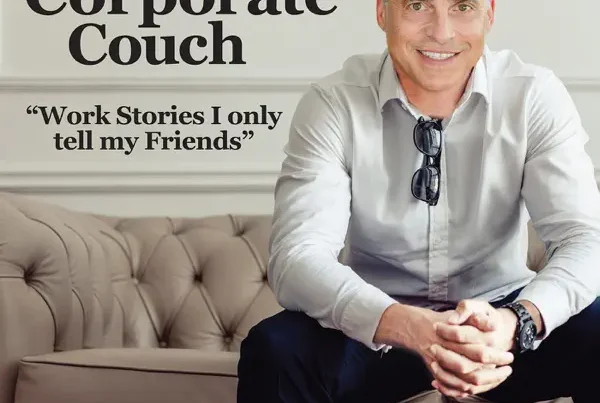 Leadership Can Come From Anyone
Leadership Can Come From Anyone
Sly – I strongly believe that leadership shows up when circumstances require it. I think that applies to everyone. Whether it’s a crisis or simply a project that’s gone off the tracks, people who haven’t yet been tagged as leaders are often the ones who step up to fix the problem. It has to make you wonder – why hadn’t they been identified as leaders in the organization?
Joni – And I strongly believe that you don’t have to be “in charge” to be a leader. I’ve always been a “do-er”. The one who shows up and starts doing stuff while others stand around. As a 19-year-old who was trying to get a job or internship with the John Edwards senatorial campaign, I showed up early to an event and started moving the chairs into place and helping with other tasks that simply needed to be done before the event started. The hiring manager saw me actually working, as opposed to the politically connected young people who also wanted the internship but who just stood around watching as I worked. So, I got the internship. I also found myself in two different roles where I was basically leading the office without having a leadership title. Fortunately, Sly, my potential… actually did give me a title – Chief of Staff – that was reflective of my work.
Sly – I was surprised to recently hear that Joni never considered herself a leader until she became our Chief of Staff. This is a great example of imposter syndrome because I knew from the day I first met her that she was a leader, no matter what her job title was at the time.
Joni – Oh, and by the way, I also believe that you learn just as much from bad leaders as you do from good leaders. It certainly provides many examples of how “NOT” to treat people. At another end of the spectrum, every organization needs really good middle managers. People in those positions need to realize that they are leaders, and the organization needs to support that because the organization needs really good people doing the actual work in all the departments and divisions.
Leadership Requires Diversity
Sly – I’ve been asked many times about my path to leadership and learned something about leadership in nearly every part of my life and career. It started when I was young. I went to high school in a very predominately white school, so everyone knew the black kid. I never had a chance just to be a quiet guy, minding my own business. I always had eyes on me. In the Marine Corps, you learn a lot about leadership, especially about taking care of your team. And then being the first Black lawyer in a top firm in Kansas City, followed by being the first Black partner…. Those were all opportunities to learn how to act in the spotlight, make decisions, and lead. Plus, I’ve never been shy about sharing my opinions.
Joni – When Sly was mayor, and I was his chief of staff, most of our initiatives required a style of leadership that would work for and with all parts of the community. We would need to build public support from residents, we would need to work with council members, who usually had their own agenda, and we would need to include media coverage as well, which was always an adventure. So realize that while you may think you need to identify and build a certain style of leadership…. You often actually need to cultivate many different styles of leadership… and then know when to deploy each style as needed for the situation or project.
Sly – And remember, when we talk about the need for diversity, the point is to get diverse opinions and views of a project, an issue, or a problem that needs to be solved. So, when everyone on your team looks the same, you’re likely missing out on new opportunities or failing to hear different opinions that you need to hear. One of the many things I loved about our team in the Mayor’s Office was how diverse everyone was. We were very deliberate about wanting staff on our team who were very different – in race, ethnicity, religion, gender, sexual orientation, age – you name it. Having so many different opinions made us better, and it made the work more interesting, too.
Leadership Tips From Joni and Sly
So let’s summarize with some tips for developing leadership when no one is looking:
- Realize that many leadership lessons you learned while growing up, or in your first jobs, will help you develop into a strong leader. Write down those experiences, and what you learned from them. It will help you see what kind of leader you are becoming.
- Remember that just because you don’t have the title doesn’t mean you won’t be seen as a leader. Do the right thing, do the work, and you’ll find even greater success when you do get the title.
- In project meetings – always ask: “Who isn’t at the table right now who should be?” If you didn’t get a diversity of options and opinions to debate, be sure to ask – “Who should we bring in who will provide a different opinion?”
Where have you found leadership in unexpected places? How did you respond or follow up?
Joni and Sly love sharing stories with people in person. To book them as a duo keynoter at conferences and corporate events, use this form to send your request.




